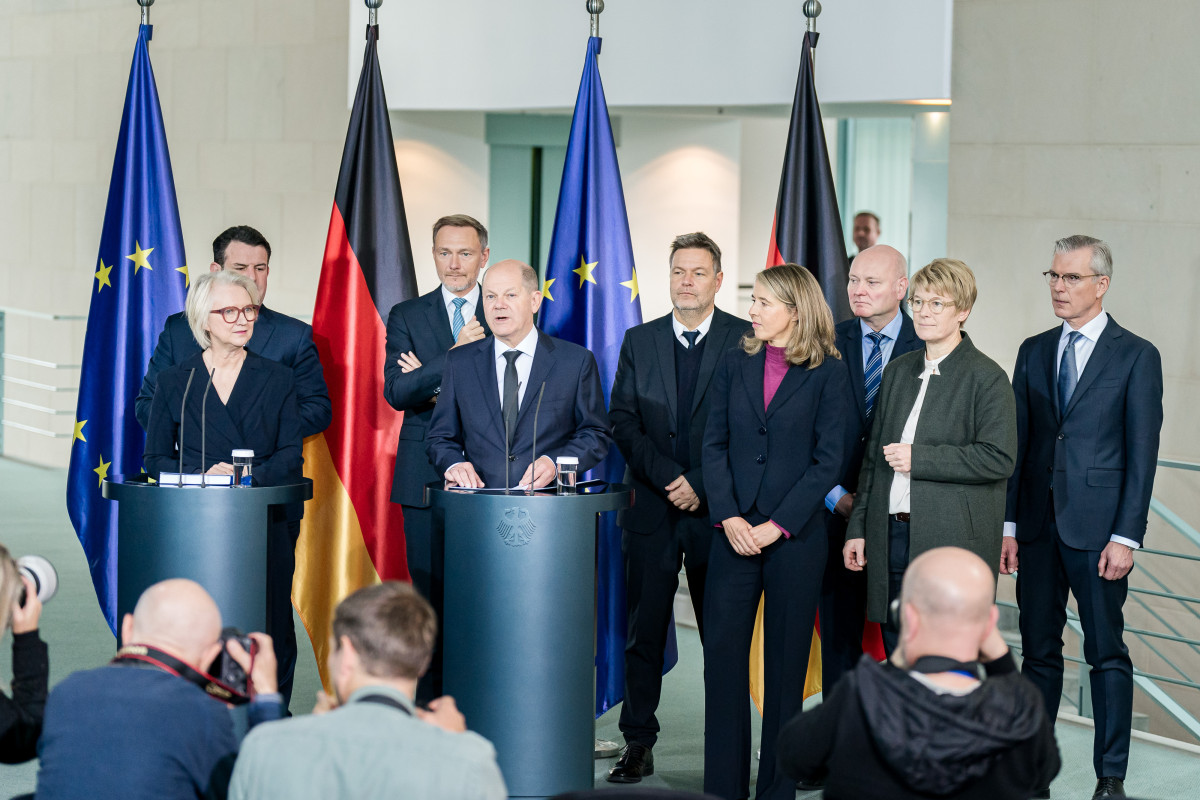Economic prospects fall to “historic low” in Germany as expert council urges energy investments
The fallout of the energy crisis and Germany’s shrinking purchasing power continue to weigh on the country’s economic recovery, the Council of Economic Experts (Wirtschaftsweise) has found in its annual report.
Germany’s GDP will likely contract by 0.4 percent in 2023, with a moderate growth of 0.7 percent expected in the following year, the report found. “The mid-term growth prospects have fallen to a historic low,” the council said when presenting its annual report to the government.
The council, consisting of five leading economists, considers the situation to be more concerning than the government’s own projections. Besides inflation, which is estimated to reach 6.1 percent this year and fall to 2.6 percent in 2024, “clear hurdles to growth” are ageing capital stock, a lower volume of labour and a lack of innovation in companies, found the council. At the same time, the weakness of export markets, notably China, also continue to dampen the recovery, the council added.
“In order to overcome this weak growth situation, Germany must invest in its future,” said the council’s chair, Monika Schnitzer. As a large part of the country’s labour force is set to drop out of the labour market in the next years, investments in innovation and productivity are needed to compensate for the loss of workers, Schnitzer argued. Moreover, the economists said the country should consider coupling the pension age to life expectancy and reforming the pension system overall.
They urged the government to foster investments in digitalisation and energy infrastructure, create reliable conditions for decarbonisation measures, and assist citizens that struggle financially with a “flat-rate climate benefit” payments (so-called Klimageld) and targeted financial aid in case of a crisis.
Fears of a greater economic slump for Germany have been widespread with the emergency of the energy crisis and Russia’s war on Ukraine, which pulled the plug on the country’s cheap access to Russian gas. However, the economy already during the summer looked set to remain on a low-growth track even as factors such as price inflation and supply chain problems were receding.
While the transition towards low-carbon production amid high fossil fuel prices is seen as a great challenge for Europe’s biggest economy and the EU’s industrial competitiveness, there are also widespread expectations that a resolute shift ultimately will benefit the industry. Despite the ongoing challenges in getting GDP growth back on track, the International Monetary Fund (IMF) projects Germany to eclipse Japan and become the world’s third biggest economy by nominal GDP in 2023.
Germany not right location to produce large quantities of green hydrogen for industry - Grimm
However, council member Monika Grimm insisted that a government-funded lower electricity price for industry should not be part of a recovery programme. “It would not be low enough to domestically produce energy-intensive intermediary products in a competitive way. But it would still be low enough to slow the transformation of non-competitive industries,” Grimm said in an interview with newspaper Die Welt. She added that “Germany is not the right location” for producing large quantities of green hydrogen for industrial purposes. Companies and policymakers should therefore focus on creating viable import conditions for the synthetic gas “to keep a large part of the complex value creation chain that rests on it in the country,” she continued.
Chancellor Olaf Scholz said the government had understood the need to invest in a swift escape from the dip in GDP, stressing that the council had explicitly lauded his government’s response to the energy crisis. “It’s important that we learn from this and tackle our problems quickly,” said Scholz. He pointed to the fast implementation of alternative natural gas import options after the end of Russian deliveries in the context of the ongoing invasion of Ukraine.
The chancellor argued that the ‘Pact for Germany’, which his government had agreed on with the country’s 16 states, would serve exactly this purpose. “This is one of the drivers to leave the weak growth phase behind us,” argued Scholz. Investments in hydrogen, battery production, climate neutral industries and the power grid could all help the country recover more quickly, he said, adding that Germany will also have to simplify the immigration process for skilled workers to counter losses in the labour force.


